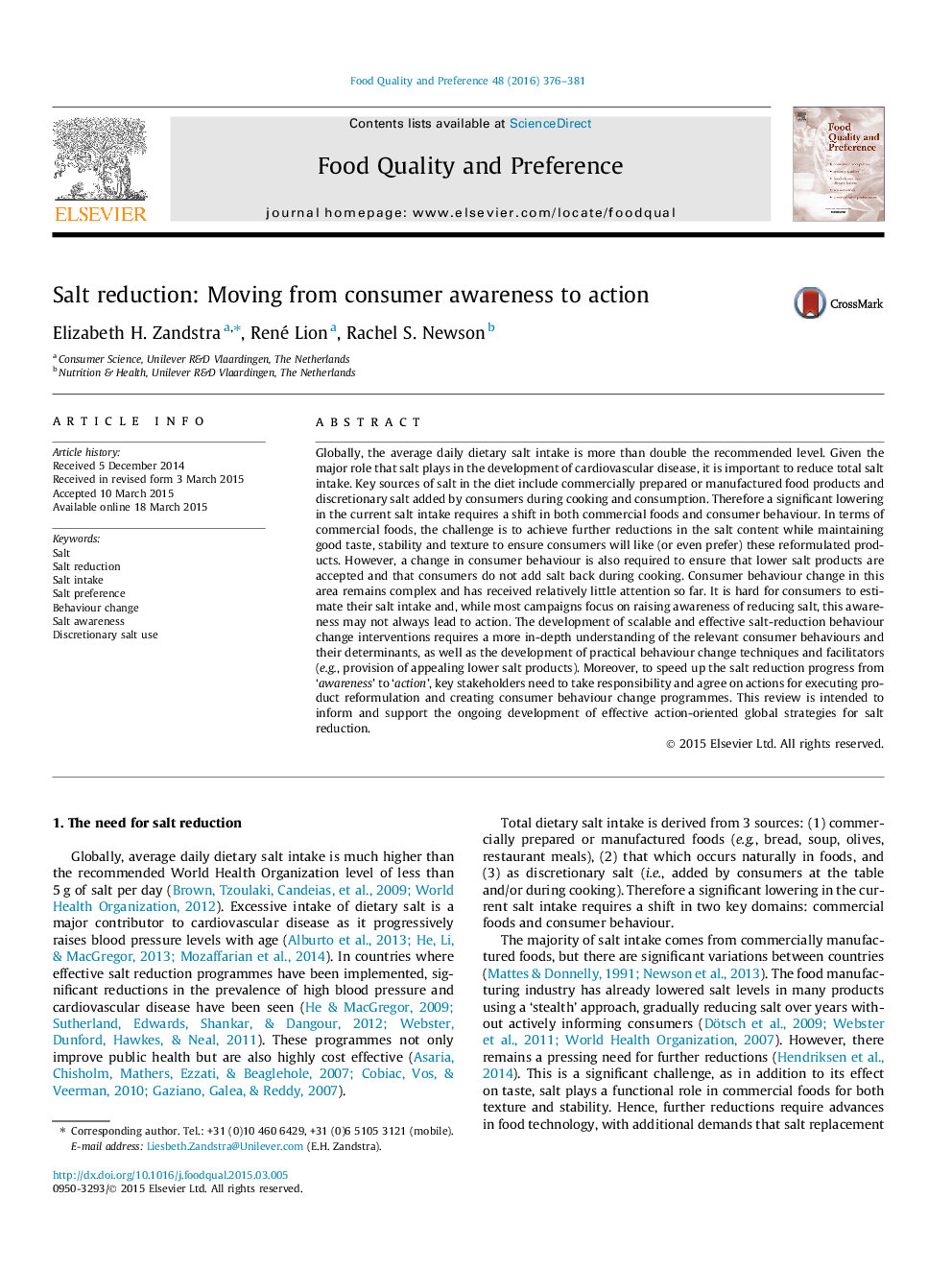| کد مقاله | کد نشریه | سال انتشار | مقاله انگلیسی | نسخه تمام متن |
|---|---|---|---|---|
| 4316909 | 1290564 | 2016 | 6 صفحه PDF | دانلود رایگان |
• A significant lowering in the current salt intakes requires a shift in both commercial foods and consumer behaviour.
• Front of Pack labels sometimes achieve the opposite effect of negatively affecting expectations, salt taste perception and even table salt use.
• Consumer behaviour change requires a collective effort to make consumers more aware of the effects of too much salt, to communicate about the benefits of lowering salt and to offer products that facilitate a lower salt diet.
• The development of scalable and effective salt-reduction behaviour change interventions requires a in-depth understanding of the relevant consumer behaviours.
Globally, the average daily dietary salt intake is more than double the recommended level. Given the major role that salt plays in the development of cardiovascular disease, it is important to reduce total salt intake. Key sources of salt in the diet include commercially prepared or manufactured food products and discretionary salt added by consumers during cooking and consumption. Therefore a significant lowering in the current salt intake requires a shift in both commercial foods and consumer behaviour. In terms of commercial foods, the challenge is to achieve further reductions in the salt content while maintaining good taste, stability and texture to ensure consumers will like (or even prefer) these reformulated products. However, a change in consumer behaviour is also required to ensure that lower salt products are accepted and that consumers do not add salt back during cooking. Consumer behaviour change in this area remains complex and has received relatively little attention so far. It is hard for consumers to estimate their salt intake and, while most campaigns focus on raising awareness of reducing salt, this awareness may not always lead to action. The development of scalable and effective salt-reduction behaviour change interventions requires a more in-depth understanding of the relevant consumer behaviours and their determinants, as well as the development of practical behaviour change techniques and facilitators (e.g., provision of appealing lower salt products). Moreover, to speed up the salt reduction progress from ‘awareness’ to ‘action’, key stakeholders need to take responsibility and agree on actions for executing product reformulation and creating consumer behaviour change programmes. This review is intended to inform and support the ongoing development of effective action-oriented global strategies for salt reduction.
Journal: Food Quality and Preference - Volume 48, Part B, March 2016, Pages 376–381
